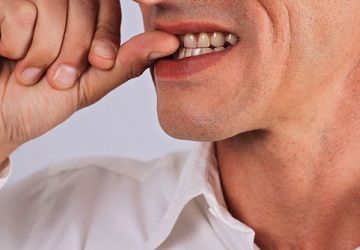New Study Calls Forensic Dentistry Practice into Question
According to a new study in the Journal of Law and the Biosciences, bite-mark identification, along with several other types of forensic science, has increasingly been shown to lack the scientific foundation needed to justify its continued use as trial evidence.

Bite-mark identification has been used for many years to identify individuals and help convict criminals. However, increasing skepticism is calling the use and validity of this type of identification into question. According to a new study in the Journal of Law and the Biosciences, bite-mark identification, along with several other types of forensic science, has increasingly been shown to lack the scientific foundation needed to justify its continued use as trial evidence.
In recent years, there have been a number of individuals who have been exonerated using DNA evidence to overturn convictions made on the basis of bite-mark identification. This has resulted in increased legal and scientific scrutiny of the practice, with many believing that there is no sound basis for believing forensic dentists can identify individuals based on a bite mark alone.
According to the Journal, recent reviews of empirical evidence seem to have underscored the lack of reliability and legitimacy of the fundamental claims of forensic dentists to be able to identify bite-mark sources on human skin. In a review of 13 studies, all aimed at determining whether human dentition was unique, none was able to support a conclusion of dental uniqueness. Nine of the reviewed studies could not identify uniqueness at all.
The Journal suggests many broader implications of such findings, including the law’s difficulty in evaluating and responding to such unreliable and unscientific evidence. As noted by the National Academy of Sciences’ Committee on Identifying the Needs of the Forensic Science Community in 2009, “The bottom line is simple: in a number of forensic science disciplines, forensic science professionals have yet to establish either the validity of their approach or the accuracy of their conclusions. Much forensic evidence including, for example, bite marks … is introduced in criminal trials without any meaningful scientific validation, determination of error rates, or reliability testing.”
Bite-mark identification has been used in trials across the United States since 1975, when a person was convicted using this type of forensic science during a trial in California. Now, the California Supreme Court stands ready to hear a case that could start a nationwide trend of disregard for forensic odontology in trials. To date, no court in the U.S. has excluded this type of evidence for failing to meet the requisite legal standard for admission of expert testimony.